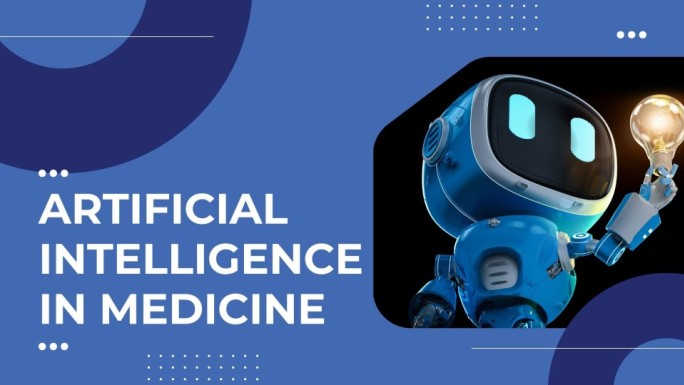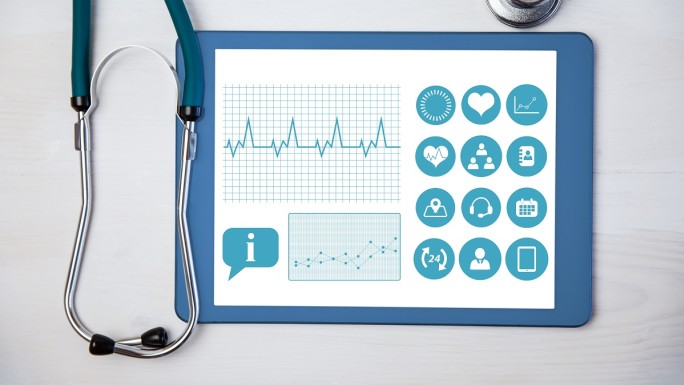Modern Medication History: A Leap in Managing Medications
In today's healthcare landscape, the concept of medication history has undergone a profound transformation. Medication history is not just about recording a list of prescribed drugs; it's a dynamic, interconnected system that influences every aspect of patient care.
In this article, we delve into the evolution of medication history, exploring the patient-centered approaches that are redefining the way we understand, document, and leverage medication histories in the 21st century. Join us as we journey through the digital change of modern healthcare, where accurate medication history is a vital component of patient safety, treatment efficacy, and informed decision-making.
What is medication history?
Medication history refers to a comprehensive record of an individual's past and current use of medications, including prescription drugs, over-the-counter (OTC) medications, dietary supplements, and herbal remedies.
Many patients take multiple medications at the same time. Information such as name, dosage, adverse reactions, or prescribers of these medications is hard to remember and accurately used by patients. Medication errors, such as medication confusion, and wrong dosage, are really common and may harm the patient’s health and cause difficulties for the healthcare process. The mission of an electronic medication history is to synthesize all necessary information about medications the patient has recently taken and minimize possible risks.

What information goes into medication history
Medication history provides a detailed account of the following information:
Medication Name: The name of the drug or supplement.
Dosage: The specific dosage or strength of the medication, including the number of units (e.g., milligrams, micrograms), and the frequency of administration (e.g., once daily, twice daily).
Route of Administration: How the medication is taken, such as orally (by mouth), topically (applied to the skin), intravenously (through a vein), or by inhalation.
Start Date: The date when the individual began taking the medication.
End Date: If applicable, the date when the individual stopped taking the medication.
Prescribing Healthcare Provider: The name and contact information of the healthcare provider who prescribed or recommended the medication.
Reason for Use: The medical condition or purpose for which the medication was prescribed or taken, such as treating high blood pressure or managing allergies.
Allergies or Adverse Reactions: Any known allergies or adverse reactions to the medication.
Adherence: Information regarding whether the individual followed the prescribed dosing instructions and took the medication as directed by the healthcare provider.
The benefits of modern medication history in healthcare
To patients
Patients are encouraged to keep an updated and accurate electronic medication history, regularly review it with their healthcare providers, and communicate any changes or concerns about their medications, a medication history helps patients:
- Identifying any allergies, intolerances, or adverse reactions to specific medications is crucial to avoid potentially harmful situations.
- For individuals with chronic conditions, maintaining an accurate medication history is vital for managing the disease effectively.
- An up-to-date medication history can help identify opportunities for preventive care, such as vaccinations or screenings.
To healthcare providers
Healthcare providers also play a critical role in maintaining and reconciling medication history to ensure the safety and well-being of their patients:
- Healthcare providers rely on accurate medication histories to ensure that prescribed medications do not interact negatively or cause adverse effects.
- A thorough medication history helps healthcare providers make informed decisions about treatment plans and medication adjustments.
- Medication history is a robust base for professional healthcare providers to follow the “5 Rights” principle: the right patient, the right drug, the right time, the right dose, and the right route.
- Saving time and resources in medication history check.
Digital transformation in medication history
Familiar medication history process at healthcare organizations starts with a patient interview and ask the patient to recall all information about the medications taken. It is a systematic process; however, there is a vast amount of information from each patient, and all need to be clarified, classified, and stored on paper or some simple computer systems. Along with the explosion of digital health solutions, a medication history management system has become necessary for healthcare organizations.
Digital technology has significantly changed the way medication histories are recorded, accessed, and managed in healthcare. Here's how digital technology has transformed medication history:
An independent platform for medication history management
Some healthcare organizations have built dedicated applications or online interfaces for managing medication history and facilitating the medication reconciliation process. These systems could have two different development user approaches:
- Healthcare providers portals: The primary users of this medication history system are pharmacists and healthcare providers. Output values of these systems are giving healthcare providers a comprehensive medication history of patients, comparing prescriptions, and printing the comparison data in PDF.
- Patient portals: Many healthcare systems provide portals where patients can access their medication history, view prescribed medications, request prescription refills, and update their medication lists. Patient portals empower patients to take an active role in managing their medication histories.
Read more What to consider in developing a medication history system

Connect to or merge with other healthcare systems
Below are some healthcare systems that can connect directly with medication history systems or have this system as a part of a bigger healthcare management program:
- Electronic Health Records (EHRs): Some EHR systems allow healthcare providers to maintain and access comprehensive electronic medication histories of patients. These records include details such as medication names, dosages, frequencies, start and stop dates, prescribers, and patient allergies.
- E-Prescribing: Digital technology enables electronic prescribing, which eliminates handwritten prescriptions and facilitates the real-time transmission of medication orders from healthcare providers to pharmacies. E-prescribing systems also incorporate medication history checks to identify potential drug interactions, allergies, and duplications, reducing medication errors.
- Barcoding and Scanning: Barcode technology is used to match patients, medications, and healthcare providers during the medication administration process. Scanning ensures that the right medication is given to the right patient at the right time, enhancing patient safety and accuracy.
- Telehealth and Remote Monitoring: Telehealth services and remote monitoring devices enable healthcare providers to remotely assess a patient's medication adherence and adjust medications as needed. These technologies also support medication management for patients who receive care at home.
- Medication Reconciliation Tools: Hospitals and healthcare facilities use digital tools to perform medication reconciliation during transitions of care, such as admission, discharge, or transfer. These tools help reconcile a patient's home medication list with their inpatient or outpatient medication orders, ensuring accuracy and safety.
Integrating the effective and outstanding technology trends
- AI and Machine Learning: Advanced algorithms analyze medication data to identify trends, patterns, and potential issues. AI can provide medication recommendations and detect adverse drug reactions based on a patient's medication history and clinical data.
- Blockchain for Medication Traceability: Blockchain technology is used to trace the supply chain of pharmaceuticals, ensuring the authenticity of medications and enhancing the transparency and security of medication histories.
- Data Analytics: Big data analytics are applied to medication histories to identify insights about medication utilization, patient outcomes, and medication trends. This data-driven approach helps healthcare organizations make informed decisions about medication management and patient care.
Conclusion
In this era of healthcare innovation, the digitization of medication history stands as a testament to the progress we've made in patient care. Medication history systems have proven themselves to be indispensable tools in the quest for enhanced patient safety, better treatment outcomes, and streamlined care processes. With their ability to provide accurate, real-time information, they have become the guardians of patient health, reducing the risk of medication errors, adverse reactions, and disruptions in care transitions.
With each advancement, the quality of care provided to patients will continue to improve, and the legacy of patient-centered, data-driven medicine will persist. The journey of modern medication history is far from over, and as we embrace these technological advancements, we embark on a path toward safer, more effective, and more patient-focused healthcare.









